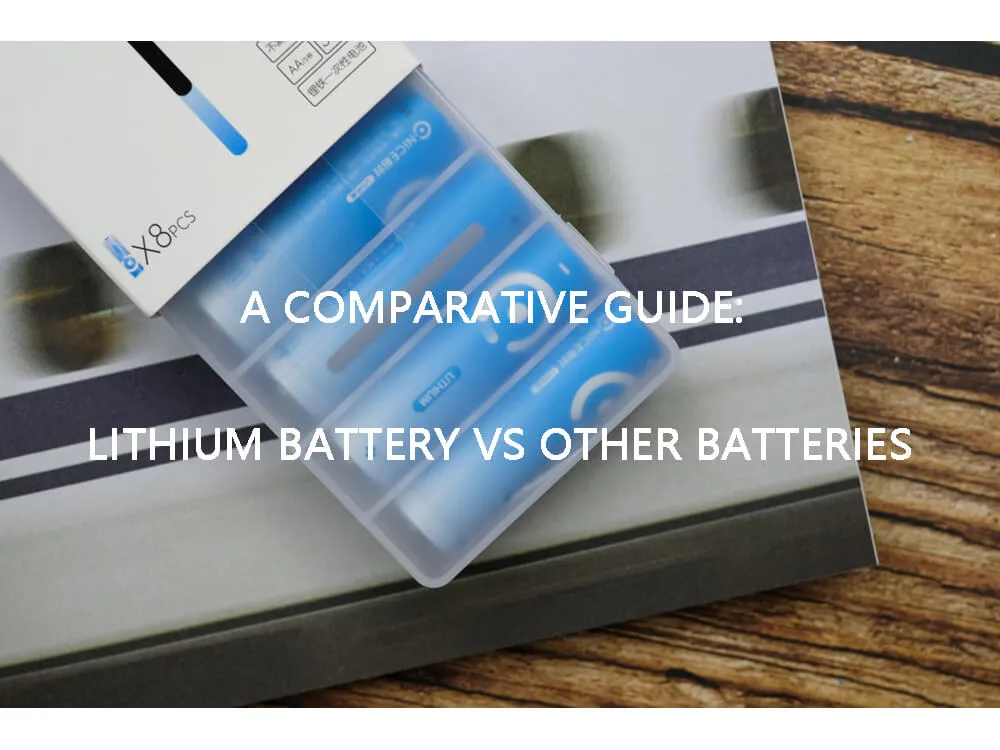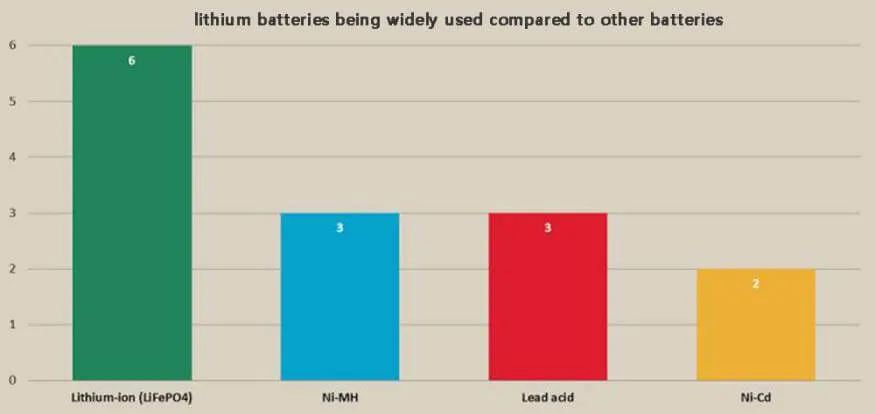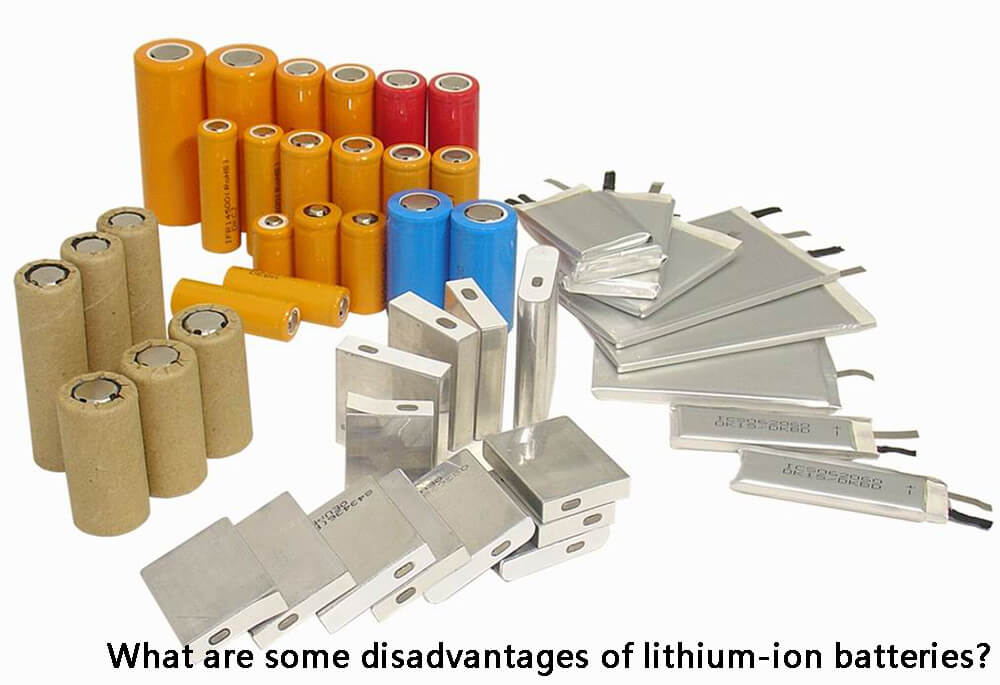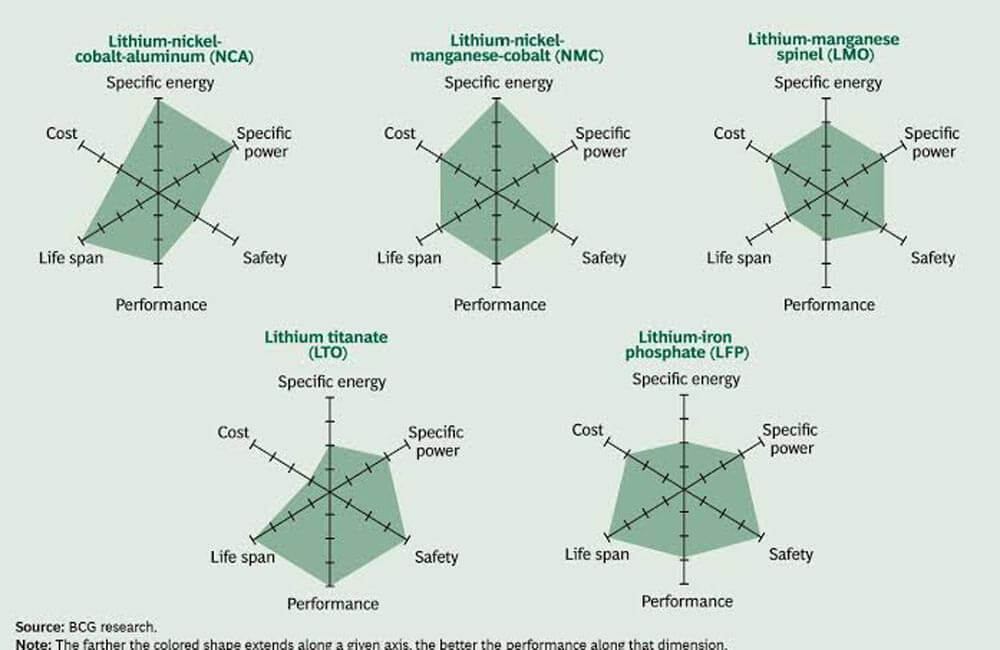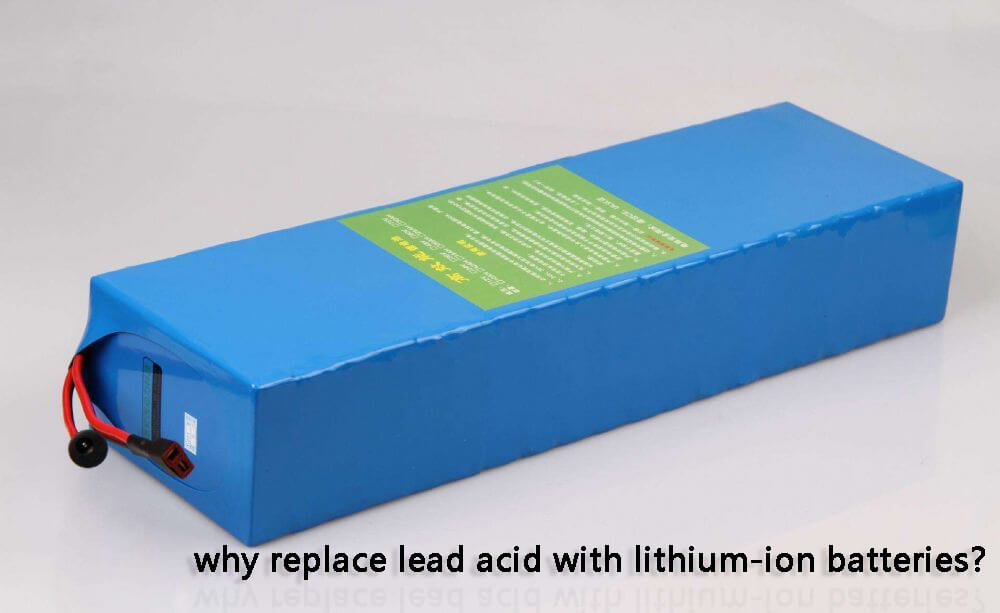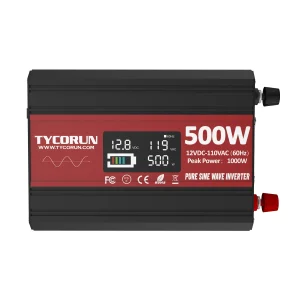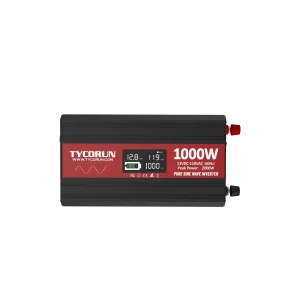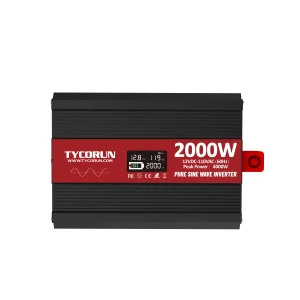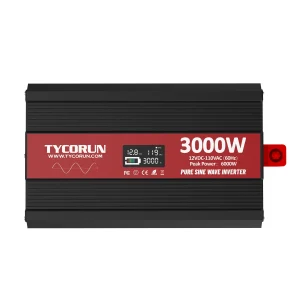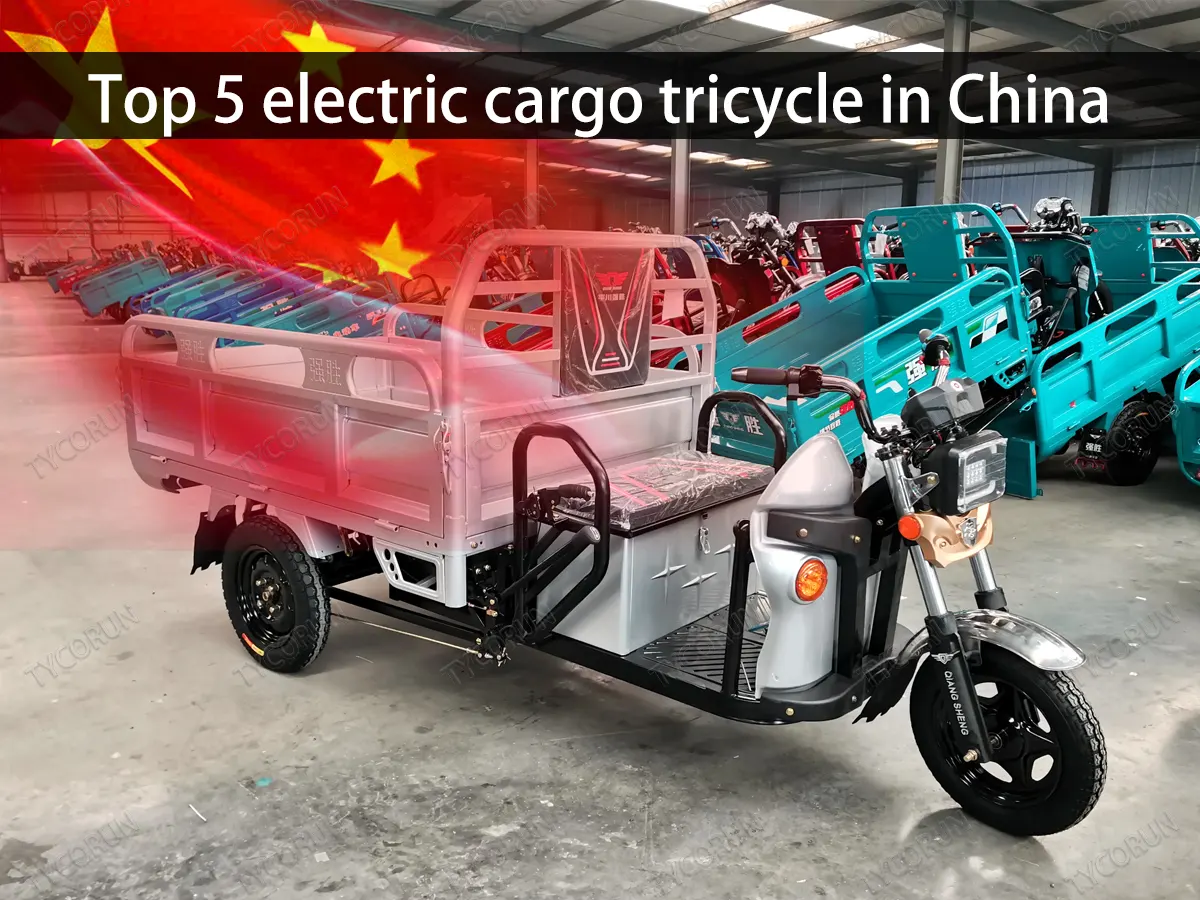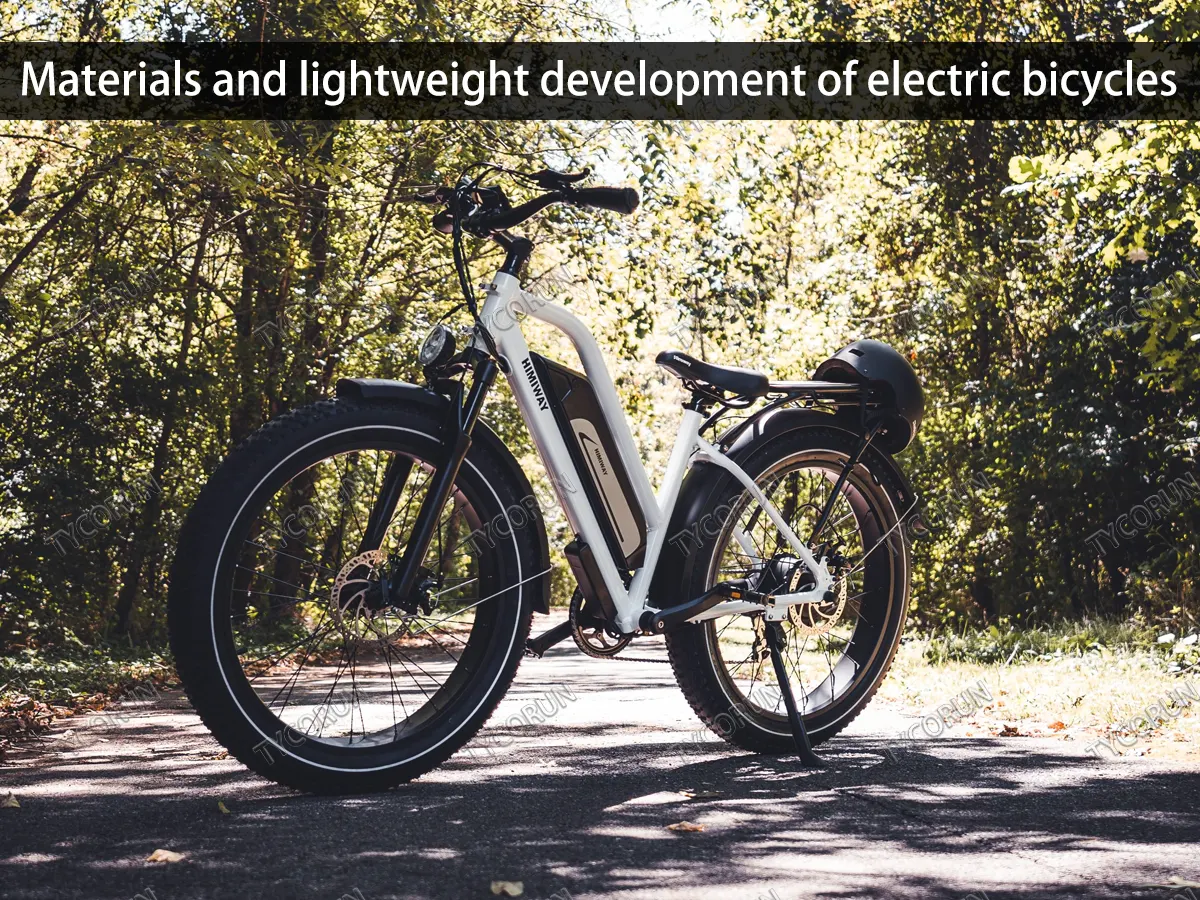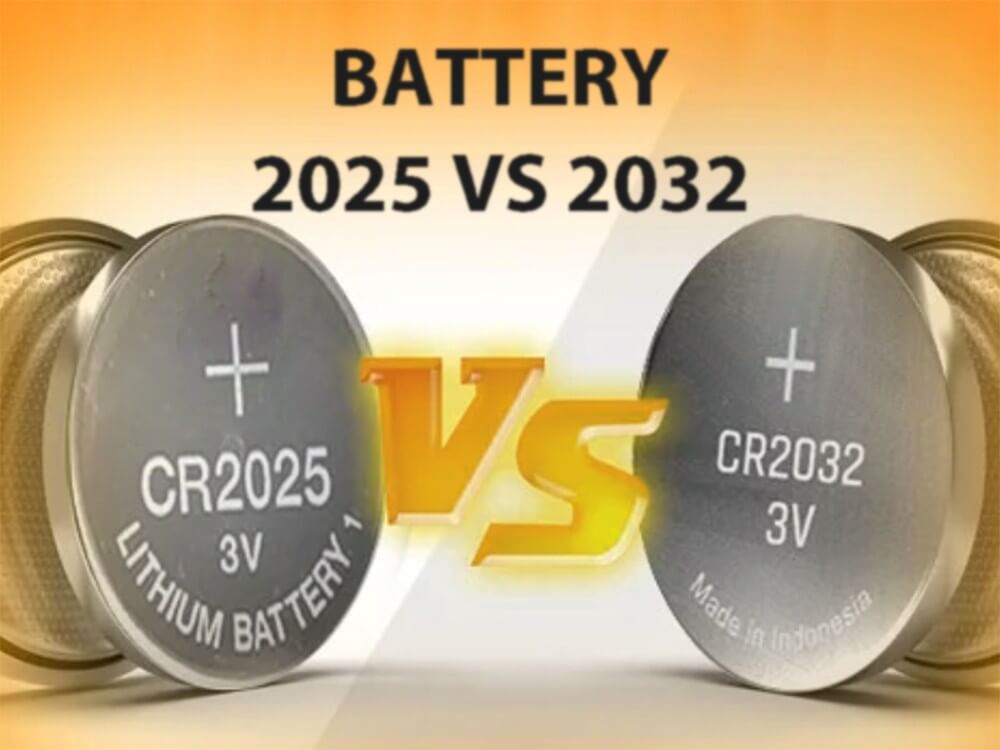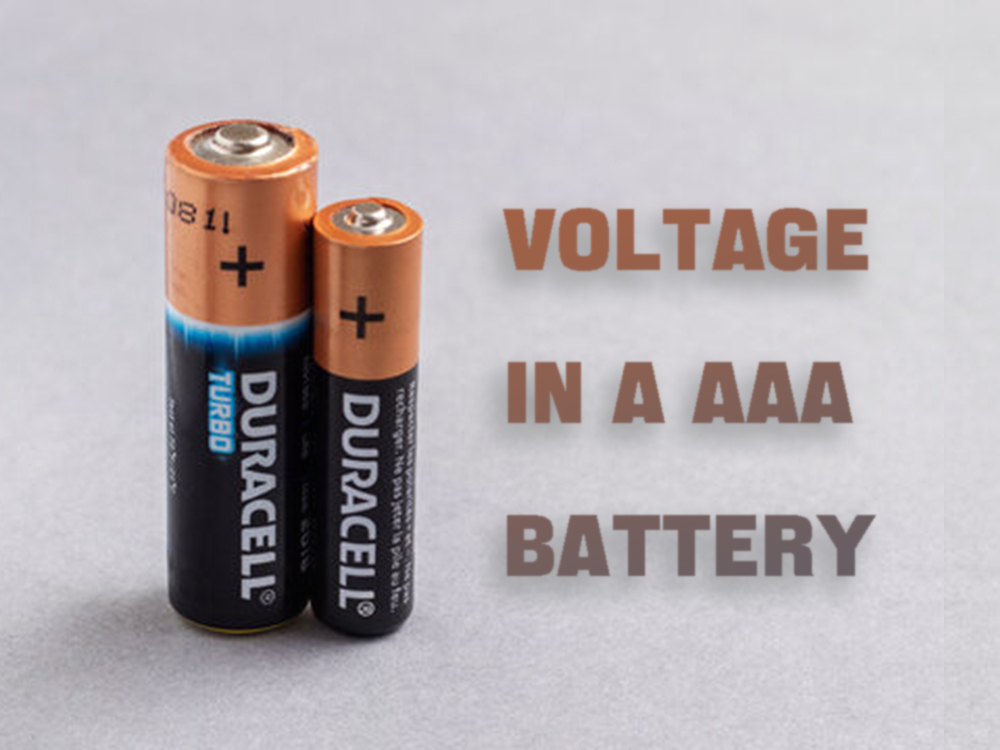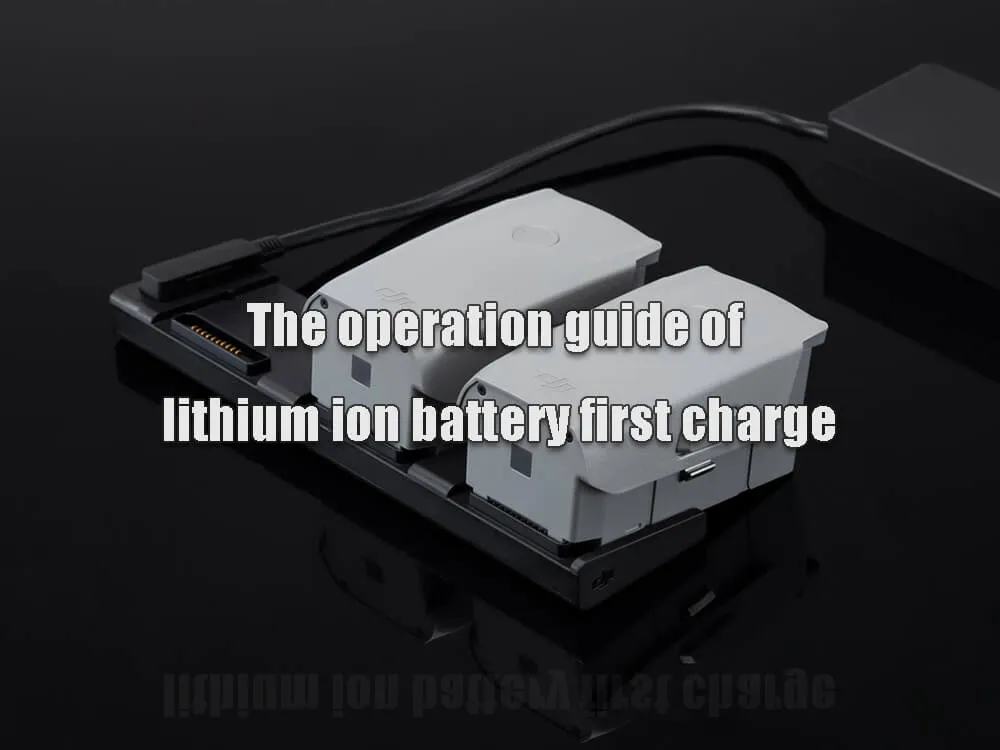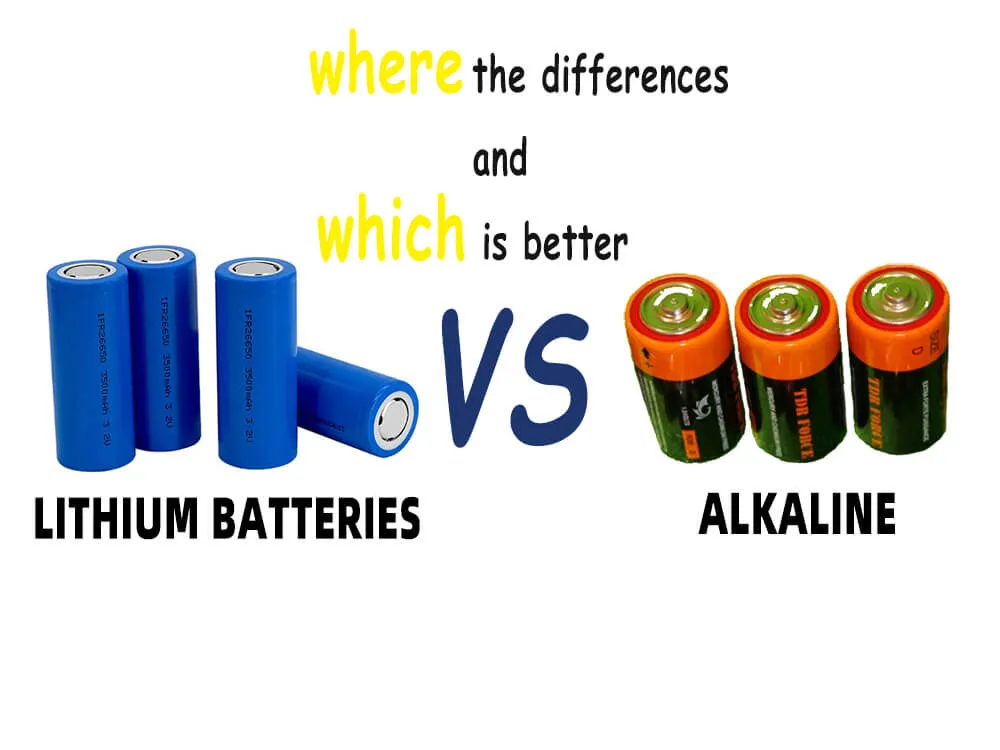Home » Battery Materials » A comparative guide – lithium battery vs other batteries
A comparative guide - lithium battery vs other batteries

But when comparing a lithium battery vs other batteries, there are some obvious differences as to why lithium batteries always come out on top. When you’re in the market for a new battery it is crucial to know some key points about battery technology and performance. In this guide, we will dissect the major differences between these batteries and answer some of the most widely asked questions in comparing a lithium battery vs other batteries.
What are the differences between a lithium battery vs other batteries
Although lithium batteries are still the most widely used battery choice in applications, other battery types are still very much in use. Comparing a lithium battery vs other batteries like lead-acid, nickel-cadmium, alkaline batteries, and others is very dynamic and this comparison can be done based on several criteria.
Voltage: The nominal voltage of a lithium battery vs other batteries is considerably higher with lithium batteries having up to 3.7 volts(ternary battery cell) per cell compared to other batteries with the highest being 1.5 volts per cell.
Capacity: In a measure of capacity when comparing a lithium battery vs other batteries, lithium batteries still come out ahead over other batteries with capacities could up to 3500mAh.
Energy density: Battery energy density, which is a measure of the energy storage capacity of a battery by weight is also another aspect in comparing a lithium battery vs other batteries. Lithium batteries have some of the largest energy densities between 100 to 250 Wh/kg in contrast to other batteries which are significantly lower.
Cycle life: The lifespan difference between a lithium battery vs other batteries is astounding with lithium batteries having 2000-4000 charge cycles compared to less than 300 charge cycles for other batteries.
Cost: With regards to cost, lithium batteries are considerably more expensive when comparing a lithium battery vs other batteries.
Application: While all batteries find applications in different tools and devices, in contrasting a lithium battery vs other batteries, lithium batteries are more widely used especially in portable devices and equipment.
Performance: Lithium batteries still have an overall better performance when comparing a lithium battery vs other batteries. Lithium-ion batteries with high energy density can maintain their best performance for longer than other batteries, providing high efficiency.
What are some advantages of lithium-ion batteries
No maintenance: In dealing with a lithium battery vs other batteries, a lithium battery requires no maintenance, unlike other batteries that require some sort of maintenance practice like topping up acids and watering in lead-acid batteries.
Longer lifespan: In addition to having zero maintenance in the case of a lithium battery vs other batteries, lithium batteries have extremely long lifespans and storage life. Lithium batteries can last for more than 4000 cycle life times while other batteries cap it off at mostly 1000 cycle life or less.
Energy intensive: Lithium batteries require less power to be charged compared to other batteries. In comparing a lithium battery vs other batteries, lithium batteries have a higher energy density meaning they can store more energy and go for longer periods without needing to be charged.
Better weight/energy ratio: When comparing a lithium battery vs other batteries, lithium batteries have lesser weight and sizes with increased capacity. This makes lithium batteries more efficient in terms of space and are also more cost-effective by weight and energy output.
Better charge: In addition to not needing frequent charging, lithium batteries also have a lower rate of self-discharge making them retain energy for long periods when kept idle. Contrasting a lithium battery vs other batteries, lithium batteries are more efficient per charge cycle compared to other batteries.
What are some disadvantages of lithium-ion batteries
Cost: The major disadvantage to a lithium battery vs other batteries is the overall cost of the battery pack. Lithium batteries are relatively expensive and can sometimes cost up 3 times the price of other batteries.
Temperature: Another major drawback of a lithium battery vs other batteries is the use of liquid electrolytes in the battery which may become highly flammable when exposed to high temperatures. Although it is relatively uncommon,However, the mainstream lithium iron phosphate batteries on the market are basically semi-solid electrolytes, and there will be no such problems, it is mostly observed with electric vehicles.
Recycling: While recycling batteries is a major part of the disposal process of used batteries, it isn’t as straightforward for lithium batteries. In terms of recycling a lithium battery vs other batteries, lithium batteries have fewer recycling factories available making it relatively more expensive to recycle them.
Is a lithium battery better than a regular battery
The short answer is, Yes. Comparing a lithium battery vs other batteries, a lithium battery is a better alternative in terms of technology, lifespan, charging rate, maintenance, performance, efficiency, and much more. Lithium batteries are a more reliable choice for energy storage and also have a wider range of applications and use compared to other batteries available today.
What type of battery lasts the longest
Lithium batteries have been proven to have the longest lifespan of any battery technology available for general use today. In dealing with a lithium battery vs other batteries, batteries such as alkaline and lead-acid batteries have proven to have a continuous decrease in voltage output and capacity over time. This is different with lithium batteries because they retain their relative voltage over time with a significantly higher number of charge cycles than other batteries.
What is the most efficient battery type
In terms of battery efficiency, lithium batteries are currently the best having the largest capacity and energy density per unit cell compared to other batteries. Dealing with a lithium battery vs other batteries, new type lithium batteries are up to 95% efficient as opposed to the lower 80% efficiency of other battery types. This efficiency is a measure of the input and output level of energy each battery type can handle throughout its operating lifespan.
Are lithium batteries worth it
in purchasing a new battery, people consider the cost which in the case of lithium batteries is much higher than other battery types. But considering a lithium battery has a longer lifespan, higher energy density, better performance, and zero maintenance, in dealing with a lithium battery vs other batteries, the lithium battery is well worth it as it is more cost-effective than other batteries.
When should you use a lithium battery
Lithium batteries have a wide range of useful applications and due to their low weight, they can be used for almost any portable device or equipment currently available. They can be used in solar power storage systems, UPS backup systems, mobile devices, home appliances, and cordless power tools. In contrasting a lithium battery vs other batteries, lithium batteries can also be used when temperatures are extremely low as they are made to operate even in low temperatures as opposed to other battery types.
Are all lithium batteries the same
Not all lithium batteries are the same as there are various chemical cmbinations of lithium with other materials with varying features such as specific energy/power, cost, safety, lifespan, and performance. These different lithium batteries include Lithium Iron Phosphate, Lithium Titanate, Lithium Magnesium oxide, Lithium Cobalt Oxide, Lithium Nickel Manganese Cobalt Oxide, and Lithium Nickel Cobalt Aluminum Oxide.
What to consider when buying a lithium battery
Getting a new lithium battery will most definitely improve the efficiency of whatever device it is intended to be paired with. But in dealing with a lithium battery vs other batteries there are a couple of things you should know when buying a new lithium battery.
Compatibility: It is important to know if your new lithium battery will be compatible with your device or tool. In the case of a lithium battery vs other batteries, most modern devices are built to be compatible with more than one battery type although there may be manufacturer recommendations that should be taken into account.
Voltage requirements: Every device or equipment has a determined voltage requirement that should not be exceeded to prevent overloading. This requirement should be considered when buying a lithium battery. In dealing with a lithium battery vs other batteries you should get a new lithium battery that offers the same voltage standards required by the device or equipment manufacturer.
Why replace lead acid with lithium-ion batteries
Replacing your current battery with a lithium battery comes with a few obvious upgrades that will improve the overall performance and efficiency of your device. Lithium batteries offer more charge cycles and a longer lifespan making them last longer than lead-acid batteries Unlike lead-acid, lithium batteries are sealed and can be mounted in any position without fear of leakage.
Lithium batteries also do not need to be maintained like lead-acid batteries and you can save cost on maintenance and acid change. In comparing a lithium battery vs other batteries, replacing a lead-acid battery with a lithium battery will be a much better choice in the end.
What batteries are better than lithium
While lithium-ion batteries remain the best and most widely used battery option, some new innovative batteries beat out lithium-ion in some aspects but they are scarcely available or used. These include some solid-state batteries that have better stability, higher energy capacity, and are less prone to fire hazards.
Do lithium batteries need a special charger
Not only lithium batteries, when choosing a charger for a battery, it is best to choose a charger that matches the battery material, voltage and current. Otherwise, it may have a bad impact on the battery or the charger, resulting in damage and performance degradation.
Can lithium battery replace alkaline
Comparing a lithium battery vs other batteries like Alkaline, a lithium battery will not only replace it but will outperform a standard alkaline battery. A lithium battery will offer better charge cycles, more energy capacity, better voltage, and improved lifespan with zero maintenance.
Are lithium batteries less likely to leak
Lithium batteries are always sealed and since they don’t require any acid change or maintenance practice, they will remain sealed till the end of their shelf life. This makes them very unlikely to leak from normal usage. Comparing a lithium battery vs other batteries like lead-acid that can be opened manually and require maintenance or watering which makes them more prone to leakages as a result of poor handling and maintenance.

